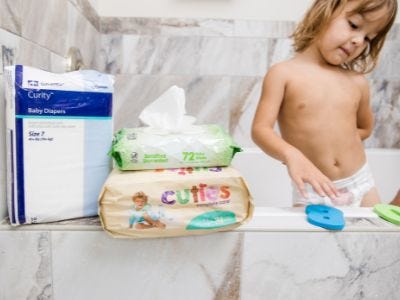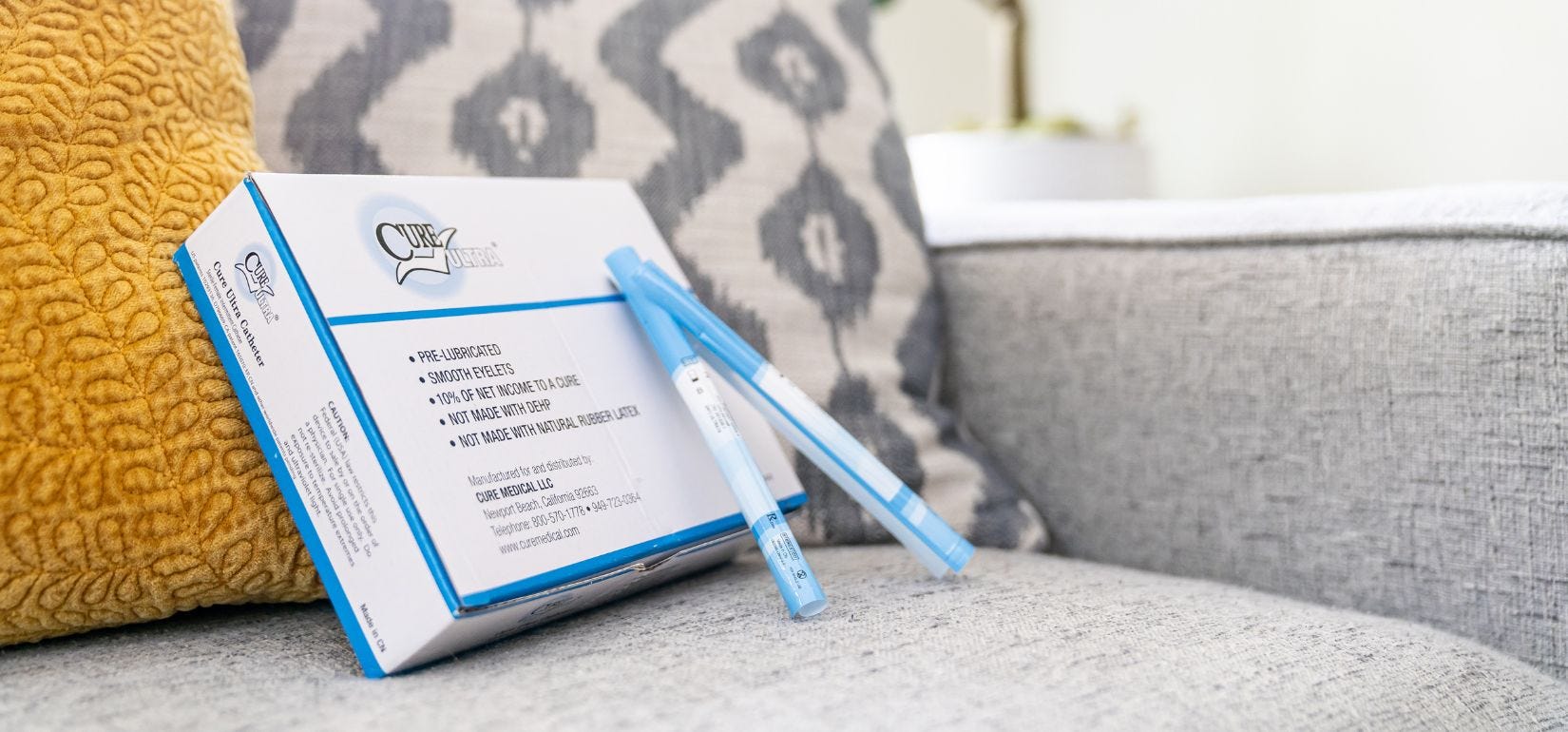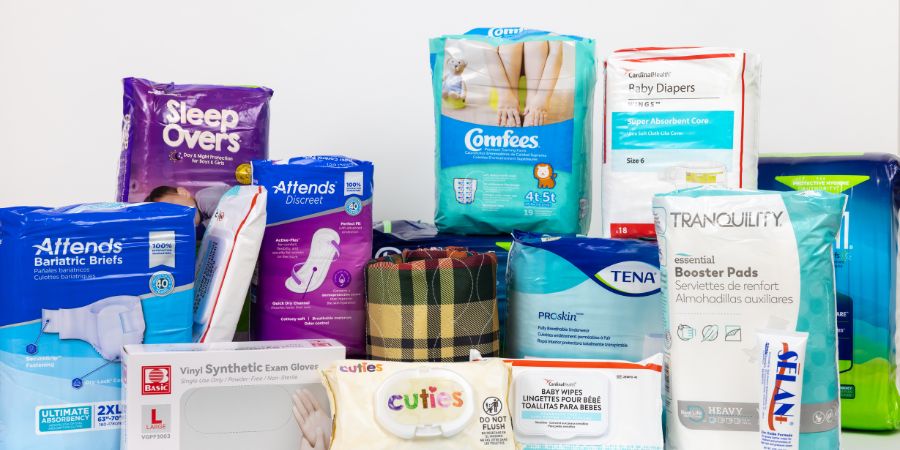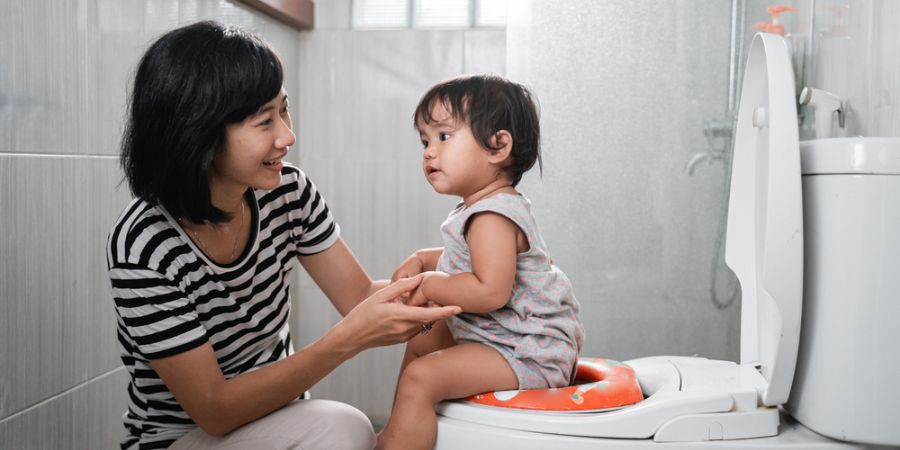Hirschsprung’s disease is a gastrointestinal birth defect that can be challenging to manage and often leads to fecal incontinence.
Read this post to find out more about the condition and see how to get free incontinence supplies for your child if they have incontinence.
What Is Hirschsprung's Disease?
Check Your Eligibility
2 Easy Steps
Diapers and pull-ons for children ages 3+ with special needs, available through Medicaid.
Hirschsprung's disease is a gastrointestinal birth defect that affects part of the large intestine and colon. When nerve cells in the colon don't form properly and the ability to release a bowel movement is impacted, severe constipation and blockage can occur.
This discomfort stems from a lack of motility and the ability to relax the colon from the ganglion cells in the gastrointestinal tract. As a further result of constant constipation, children can also develop a lack of appetite and slow growth.
There are two types of Hirschsprung's disease:


Short-segment is the most common, occurring in 80% of cases, and involves the last segment of the colon and rectum.
Long-segment is the more serious of the two types and takes place when most of the large intestine doesn't have functioning ganglion cells.
Diagnosis
A rectal biopsy is typically needed to diagnose Hirschsprung's disease. There are several different types of rectal biopsies, but the least invasive is anorectal manometry. Anorectal manometry helps to determine how much the child can contract their colon, which can be a good indicator of the prevalence of Hirschsprung's disease.
Hirschsprung's disease can also be detected at birth when a baby does not produce its first poop, known as meconium, within the first 48 hours of life. While not as common, the disease can also be diagnosed in older children or adults.
Cause
Experts do not know exactly what causes Hirschsprung’s disease, but there are a few circumstances that can point to higher risk:
- Statistics suggest Down syndrome could be a leading cause of Hirschsprung's disease. 1 in 100 children with Down syndrome also has Hirschsprung’s disease.
- Children born with congenital heart defects, like those with Down syndrome, also show a higher risk of being diagnosed.
- Family history can also play a part in being diagnosed with Hirschsprung's. A parent diagnosed with Hirschsprung's disease is likely to pass it on to their children. The chance is even more likely if the mother is the one previously diagnosed.
- Gender could be a factor. Males are three to four times more likely to have Hirschsprung’s disease than females.
Prognosis
Children with Hirschsprung's disease can live very normal lives with few symptoms once treated. Most children that have surgical treatments heal and pass stool normally, as well as gain their appetite back after surgery and gain healthy weight and thrive with their improved colon.
However, fecal incontinence can occur after surgery and in more rare cases, constipation and bowel control problems may persist. Once corrective surgery is performed on children, they can go back to normal activities and regular follow-ups unless otherwise stated by their healthcare provider.


Treatments
There are both surgical and non-surgical ways to treat and manage Hirschsprung's disease.
Non-Surgical Treatments
- Incontinence Products. Incontinence products for heavier leaks are an excellent option when it comes to treating symptoms of fecal incontinence. Pediatric diapers and pull-ons are designed to handle moderate to heavy leaks, and you can also use underpads or booster pads to decrease the change of leaks on furniture. The best part is that your child may qualify to get fecal incontinence products for free with Aeroflow Urology! We send free samples, deliver for free, and even reach out to your child’s healthcare provider for a prescription on their behalf. To see if your child qualifies, fill out our Eligibility Form today!


- Exercise. Exercise is a known remedy that helps the stool to pass easier through the body. Movement in the body helps the colon produce bowel movements.
- Enemas. Enemas can be given as a temporary treatment, but is not as effective as surgery and should not be relied upon as a permanent solution. Enemas will also be given to the child prior to surgery if that route is taken.
- Laxatives. Laxatives can also be given to children to help make bowel movements easier. Speak with your healthcare provider before giving your child a laxative to ensure their safety.
- Stool Softeners. Stool softeners are laxatives but not all laxatives are stool softeners. Stool softeners soften the poop to make the exit easier on the child.
Surgical
- Pull-Through Method. The pull-through method is a procedure that removes the section of the gastrointestinal tract that is not functioning properly and connects the two healthy sections. Once the healthy parts are connected, the colon is injected with ganglion cells that are able to relax the muscles and allow for normal bowel movements.


- Ostomy Method. With the ostomy method, the under-functioning part of the colon is removed and a stoma is created. Waste is then routed through the stoma and into a bag for collection. This is a temporary solution that allows the colon time to heal. After the colon has healed, sections of the intestine are reconnected to the rectum or anus to allow the individual to have normal bowel movements.
- Small Bowel Transplant. In very rare cases, when Hirschsprung’s disease affects the entire GI tract or is paired with another disease of the colon, it can cause extremely debilitating symptoms. In these cases, a small bowel transplant surgery is possible.
Get Free Incontinence Products for Your Child
If your child is experiencing fecal incontinence and has Hirschsprung’s disease, they may be able to get free bowel control products with insurance and Aeroflow Urology.
We may be able to provide your child with high-quality and super-absorbent products, such as underpads, diapers, pull-ons, and overnight diapers.
To see if they qualify, fill out our Eligibility Form.
We’ll send your child free samples so they find their perfect incontinence product before your order ships. We’ll send your child’s supplies in unmarked boxes on a monthly basis so you’ll never run out of supplies!
Information provided on the Aeroflow Urology blog is not intended as a substitute to medical advice or care from a healthcare professional. Aeroflow recommends consulting your healthcare provider if you are experiencing medical issues relating to incontinence.









